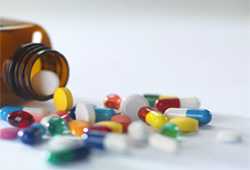 Below are some highlights from third quarter 2020 earnings reports recently released by biologics and biosimilars companies:
Below are some highlights from third quarter 2020 earnings reports recently released by biologics and biosimilars companies:
- Biogen reported a decrease in year over year (YoY) revenue of 6% to $3.4 billion, but a 13% increase to $208 million in biosimilar revenue. It reported the following YoY revenue for each of its biosimilars:
- Etanercept (Benepali®): + 7% to $124 million
- Adalimumab (Imraldi®): + 14% to $56 million
- Infliximab (Flixabi®): + 49% to $27 million
- Notably, in October Biogen and Samsung Bioepsis reported that the European Medicines Agency (EMA) approved their application for SB11, a proposed biosimilar referencing Lucentis® (ranibizumab). Ranibizumab is an anti-VEGF agent for vascular disorders.
- Moving forward, Biogen expressed excitement over its submission of a marketing authorization application for aducanumab in Europe for treatment of Parkinson’s disease and assured investors that it has “continued to allocate capital to create the opportunity for long-term shareholder value, including business development with our new collaboration in Parkinson’s disease.”
- Samsung Biologics reported a decrease in revenue by nearly 11% to 274.6 billion as compared to the second quarter of 2020. These numbers still mark a 48.6% increase in YoY revenue from the 184.8 billion that it reported in the third quarter of 2019. Samsung reported the following sales revenue (based on 2019 global sales) for its Samsung Bioepis pipeline:
- Etanercept (EticovoTM): (2.7%) YoY to $7.2 billion
- Infliximab (Renflexis®): (16.7%) YoY to $5.0 billion
- Adalimumab (Hadlima): (3.9%) YoY to $19.7 billion
- Trastuzumab (Ontruzant®): (14.1%) YoY to $6.1 billion
- Bevacizumab (Aybintio®): +1.4% YoY to $7.1 billion
- Ranibizumab (SB11): +5.4% YoY to $3.9 billion
- Aflibercept (SB15): $7.5 billion (not reported in Q3 2019)
- Eculizumab (SB12): (8.3%) to $3.9 billion
- Moving forward, Samsung Biologics focused on its Bioepis pipeline, noting that in August it received approval from the European Commission (EC) for its Avastin Biosimilar (SB8) and in October it received marketing approval from the EC for its bevacizumab biosimilar (Aybintio).
- Amgen reported a YoY 12% increase in total revenue to $1.486 billion and its biosimilars showed the following sales growth:
- Adalimumab (Amjevita®): +31% YoY to $80 million
- Trastuzumab (Kanjinti®): +$167 million QoQ (YoY reported as “not meaningful”)
- Bevacizumab (Mvasi®): +34% QoQ to $231 million (YoY reported as “not meaningful”)
- Filgrastim (Neupogen®): +20% YoY to $65 million
- Pegfilgrastim (Neulasta®): (22%) YoY to $555 million
- Etanercept (Enbrel®): (3%) YoY to $1.325 billion
- Epoetin (Epogen®): (31%) to $149 million
- Infliximab (Avsola®): (not individually reported)
- Notably, Amgen launched Kanjinti and Mvasi in the United States in 2019.
- Amgen emphasized a positive view about the strength of its “volume-driven” growth across its portfolio and advancement of its pipeline, including Aimovig, for which it has filed a marketing authorization with the Japan Pharmaceuticals and Medical Devices Agency for migraine prevention. Amgen also noted its announcement of a global antibody manufacturing collaboration with Eli Lilly to increase the supply capacity available for Lilly’s potential COVID-19 therapies.
- Biocon reported increased YoY revenue of 10% to $17.6 billion and 11% growth in biosimilars to 6.07 billion. Biocon emphasized commercialization of its Insulin Glargine product, Semglee®, in the U.S. during the past quarter. It also announced that “[a]s a part of [its] commitment to address the novel coronavirus pandemic in India, the Biocon Group is working on a comprehensive portfolio of products for treating mild to severely ill COVID-19 patients,” which includes ARAFLU® (Favipiravir), Cytosorb® and Alzumab-LTM, and Remdesivir under a voluntary licensing agreement with Gilead.

